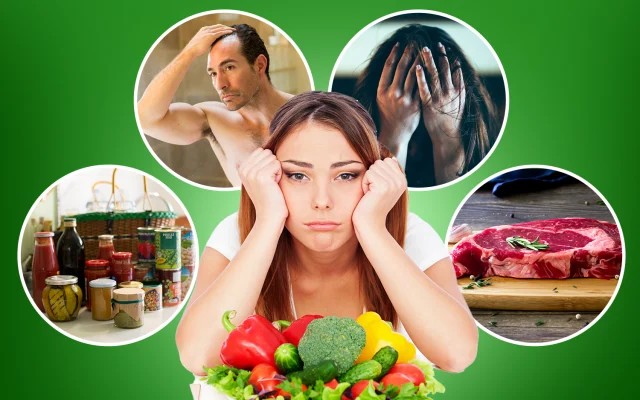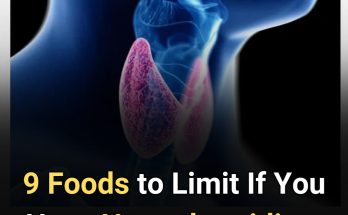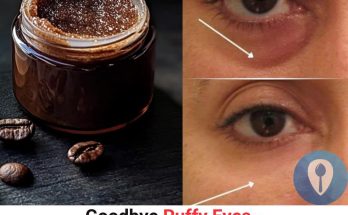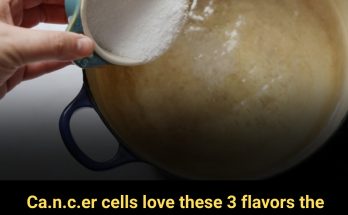YOU could be forgiven for thinking vegan diets are the healthiest of all.
It is often touted as a healthier alternative to eating meat — but a new book claims many of the health “benefits” may be unfounded.
In The Great Plant-Based Con, author Jayne Buxton says there are many reasons why giving up meat and dairy could in fact be detrimental to your health.
Not only are your odds of anaemia and bone fractures greater, but you could be putting yourself at a higher risk of stroke and kidney stones.
Jayne says: “We are all being persuaded that it’s a good idea to give up animal-sourced foods like fish, eggs and dairy.
“Celebrities are doing it. Vegan restaurants have started popping up everywhere.”
US singer Lizzo and TV wildlife presenter Chris Packham are among the celebrities who follow a vegan diet and millions sign up for Veganuary every year.
Instead, Jayne says that a wholefood diet with plenty of fresh, seasonal plant and animal food is better for your health.
Here, she shares eight reasons to think twice before you go vegan.
DEFICIENCIES ARE RIFE
“Vitamin deficiency is one of the reasons I would advise people not to go vegan,” says Jayne.
“Vitamin B12 is essential for neurological and brain function.
“Most people know you can’t get it from plant-based foods and vegans will say to supplement.”
But Jayne warns that relying on a supplement to make a diet healthy is a problem.
She says: “Rates of vitamin B12 deficiency among vegans is still higher than in omnivores.
“Vitamin B12 isn’t the only thing missing either.
“Many other nutrients are difficult to get in the right form from plant foods, including vitamin A, D3, K2 and iron. The list is very long.”
HAIR LOSS
“Losing hair is one of the most commonly cited reasons vegans give for going back to eating meat and other animal sourced foods,” explains Jayne.
She thinks hair loss is almost certainly linked to a deficiency in B12 or iron, and adds: “If you’re not eating enough of the correct foods or your body isn’t absorbing enough nutrients, this could cause shedding, even if you’re only slightly deficient.”
BONE FRACTURES
A research paper from 2008 found that vegans were more likely to suffer bone fractures.
After five years, vegans were, on average, 30 per cent more likely to suffer a fracture than meat eaters.
The risk was the same if they took supplements.
Jayne says: “Without amino acids and nutrients found in meat, fish, eggs and dairy, you are at risk of weak bones and muscles.”
ARTHRITIS & KIDNEY STONES
Oxalates are “anti-nutrients”, found in plant-based foods including spinach, almonds and sweet potatoes.
Eating large amounts of foods high in oxalates can cause kidney stones. Oxalates can build in joints, causing arthritic pain.
“We call this oxalate overload and it’s common in vegans who might have a lot of spinach and almond smoothies,” Jayne says.
MANY PLANT-BASED FOODS ARE ULTRA-PROCESSED
Nut milks, vegan cheese, “fake meats” and other substitutes are not better for our health as they are heavily processed.
“We already eat a lot of processed food in the UK, around 60 per cent of our food is processed,” Jayne says.
“But many of the vegan foods that have flooded the market are even worse.
“A vegan cream, for example, will have the real dairy cream taken out and it will have e-numbers, additives, emulsifiers and flavourings added to give it the right flavour and texture.
“This is not improving our diets, it’s making them worse.”
MEAT ISN’T ALL BAD
“Meat is very good when eaten in moderation, usually around three or four times a week,” says Jayne.
“It provides nutrients essential for brain health and some evidence suggests it protects against heart disease.
“A 2021 study found the Paleo diet, which includes meat, eggs and fish, may have cardiovascular benefits, particularly when it meant a low consumption of ultra-processed foods.”
Jayne claims that studies linking meat with cancer are often poorly designed and based on “extremely weak data”.
Cancer Research UK says processed meat is a “definite” cause of cancer, and red meat is ‘probable’.
LINKED TO DEPRESSION
Growing evidence suggests vegans may be at greater risk of mental illness.
One 2022 study surveyed 14,000 Brazilians and found those who followed a vegan diet were twice as likely to be depressed.
Jayne says: “This is not surprising given many nutrients important for mental health — such as DHA, iodine and B12 — are in very short supply in vegan diets.
. . . AND STROKE
Some studies show vegetarian and vegan diets can protect against stroke, others the opposite.
A 2019 EPIC-Oxford study found vegans had higher risk of stroke than meat eaters.
Jayne adds: “In studies that show a benefit from eating a vegan diet, results may be down to lower levels of smoking and alcohol intake and other elements of a healthy lifestyle.”
- The Great Plant-Based Con: Why eating a plants-only diet won’t improve your health or save the planet, by Jayne Buxton (Piatkus) is out now.
‘I FELT DIZZY, NAUSEOUS AND TIRED ALL THE TIME’

ENTREPRENEUR Viva O’Flynn, founder of cake-making company Love Viva Cakes and Crafts, went vegan for ten years.
But she returned to eating animal-based foods after suffering dizziness, nausea and extreme tiredness.
Viva, 40, from Gloucester, says: “I thought I was helping the planet by giving up animal foods, even though I’d always loved them.
“Almost immediately I started to suffer from a lack of energy. I felt tired all the time and very weak. I didn’t take any supplements, which probably didn’t help. I’d often feel dizzy, nauseous and I’d suffer with headaches and vertigo, as well as exhaustion.
“My body simply wasn’t getting the energy it needed.
“My nails were very brittle, too, and kept breaking, and my skin looked dull and dry.
“I was eating lots of vegetables and processed vegan foods I was picking up from the frozen aisle at the supermarket.
“In the end I was feeling so poorly that I went to see my GP.
“That was in 2012 and he basically told me I needed to start eating meat again.
“As soon as I did, I started to feel like my usual self and I had so much more energy and I look better than before.
“I’d never go back to being vegan.”










